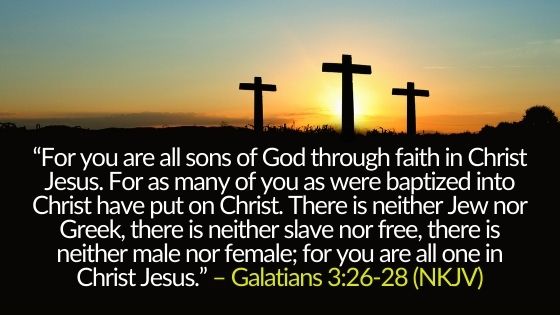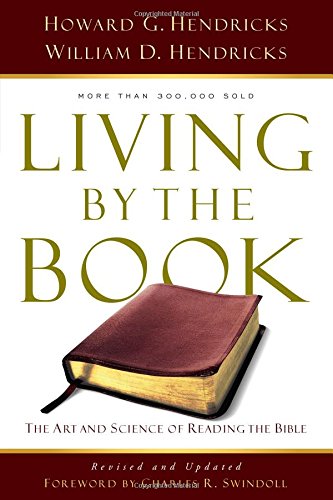One passage that is often grossly misinterpreted by some Christians is Peter’s vision of unclean food (or animals) in Acts 10:9-16. Accordingly, this account in the New Testament shows how believers today are free to eat anything and everything. Unlike the OT saints who had to adhere strictly to several dietary restrictions, we can consume all kinds of meat, including the blood of animals.
By the way, this post is not about whether Christians can eat blood or not. It is also not about eating foods sacrificed to idols (1 Corinthians 8:4-13). I have another article that tackled this problem among believers in the church at Corinth.
Peter’s Vision in Acts 10
About noon the following day as they were on their journey and approaching the city, Peter went up on the roof to pray. He became hungry and wanted something to eat, and while the meal was being prepared, he fell into a trance. He saw heaven opened and something like a large sheet being let down to earth by its four corners. It contained all kinds of four-footed animals, as well as reptiles and birds.
Then a voice told him, “Get up, Peter. Kill and eat.” “Surely not, Lord!” Peter replied. “I have never eaten anything impure or unclean.” The voice spoke to him a second time, “Do not call anything impure that God has made clean.” This happened three times, and immediately the sheet was taken back to heaven (Acts 10:9-16, NIV).
Interpreting Peter’s Vision
The most important principle of Bible interpretation is to do it in the context of the passage. This is because context determines the meaning.
We must always consider the immediate context. What do the surrounding verses say? What’s the overall theme and train of thought of the passage? Or the overall context or theme of the entire book? To correctly assess the meaning, the interpreter should look at all the circles of context.

The church was born on Pentecost as followers of the risen Lord gathered in one place, and the Holy Spirit came to rest on each of them (Acts 2:1-2). Scripture tells us that they were devout Jews from every nation living in Jerusalem (Acts 2:5). We see that the focus of Christ’s ministry was the lost sheep of Israel, the Jews (Matthew 10:5-6, 15:24).
But when we get to chapter 10, we see a pivotal shift in the book, for it records the salvation of the Gentiles.
The Gentiles Hear the Good News
What Peter saw had nothing to do with food; what’s clean or unclean. Instead, God used a vision about food to teach Peter that the Gentiles were not unclean. Peter was hungry, and a vision of food would certainly speak to his condition. Furthermore, the distinction between “unclean” and “clean” foods was a major problem between the Jews and the Gentiles on that day.
Peter’s Christian friends criticized him for eating with the Gentiles (Acts 11:1-3). Yet, God used this centuries-old regulation (Leviticus 11:1-47) to teach Peter an important spiritual lesson. Peter got the message, loud and clear (Acts 10:28, NIV).
The fact that Peter invited the three men (Gentiles) who came looking for him to lodge with him (Acts 10:19-23) is another indication that the walls were coming down. The following day, He set out with the men and some of the other believers from Joppa. When they arrived in Caesarea, Cornelius and his relatives and close friends met with them.
God Shows No Partiality
Faith comes only through the Word (Romans 10:17) and Peter preached that Word.
Then Peter began to speak: “I now realize how true it is that God does not show favoritism but accepts from every nation the one who fears Him and does what is right. You know the message God sent to the people of Israel, announcing the good news of peace through Jesus Christ, who is Lord of all.
You know what has happened throughout the province of Judea, beginning in Galilee after the baptism that John preached – how God anointed Jesus of Nazareth with the Holy Spirit and power, and how He went around doing good and healing all who were under the power of the devil because God was with Him” (Acts 10:34-38, NIV).
God does not show partiality when it comes to sin and salvation (Romans 2:11; 3:22-23; 10:1-13). He is no respecter of person as far as nationality and race are concerned. All people have the same Creator (Acts 17:26) and all people need the same Savior (Acts 4:12).
The Gentiles Receive the Holy Spirit
As Peter was just getting started in his message, the people believed, and the Holy Spirit came on all of them (Acts 10:44).
“And those of the circumcision who believed were astonished, as many as came with Peter, because the gift of the Holy Spirit had been poured out on the Gentiles also. For they heard them speak with tongues and magnify God. Then Peter answered, ‘Can anyone forbid water, that these should not be baptized who have received the Holy Spirit just as we have” (Acts 10:44-47)?
“As I began to speak, the Holy Spirit fell upon them, as upon us at the beginning. Then I remembered the word of the Lord, how He said, ‘John indeed baptized with water, but you shall be baptized with the Holy Spirit.’ If therefore God gave them the same gift as He gave us when we believed on the Lord Jesus Christ, who was I that I could withstand God” (Acts 11:15-17).
The witness of the Spirit was crucial, for this was God’s own testimony that He had indeed saved the Gentiles.
With this event, the period of transition in the early history of the church ended. Believers among the Jews, Samaritans, and Gentiles have all received the Spirit of God and are united in the body of Christ (1 Corinthians 12:13; Galatians 3:27).
The Same Gift for All: Salvation
As soon as he returned to Jerusalem, Peter was met by members of the strong legalistic party in the church of Judea (the Jewish believers). They rebuked him for fellowshipping with Gentiles and eating with them.
Note: Keep in mind that these Jewish believers did not yet understand the relationship between law and grace, Jews and Gentiles, and Israel and the church.

Acts 11:5-12
“I was in the city of Joppa praying, and in a trance, I saw a vision. I saw something like a large sheet being let down from heaven by its four corners, and it came down to where I was. I looked into it and saw four-footed animals of the earth, wild beasts, reptiles, and birds. Then I heard a voice telling me, ‘Get up, Peter. Kill and eat.’”
“I replied, ‘Surely not, Lord! Nothing impure or unclean has ever entered my mouth.’ The voice spoke from heaven a second time, ‘Do not call anything impure that God has made clean.’ This happened three times, and then it was all pulled up to heaven again.
Right then three men who had been sent to me from Caesarea stopped at the house where I was staying. The Spirit told me to have no hesitation about going with them. These six brothers also went with me, and we entered the man’s house.”
Peter told them the story from the beginning. And when he was finished, the Jewish legalists dropped their charges and glorified God for the salvation of the Gentiles (Acts 11:18).
Closing Words
The vision of Peter shows us that salvation was made available to all who believe (John 3:16). “For you are all children of God through faith in Christ Jesus. There is neither Jew nor Greek, there is neither slave nor free, there is neither male nor female; for you are all one in Christ Jesus” (Galatians 3:26-28).
As Christians, we are to receive one another and not dispute over cultural differences or minor matters of personal conviction.
Some of the Jewish Christians in the early church wanted the Gentiles to become Jews. And some of the Gentile believers wanted the Jews to stop being Jews and become Gentiles. This attitude can create serious division in the church even today. So, we must follow the example of Acts 11:18.
Disclaimer: As an Amazon Associate, I may earn a commission when you use any links on this page to make a purchase, but at no additional cost to you.
Recommended Resource:
Living By the Book: The Art and Science of Reading the Bible by Howard G. Hendricks (Author), William D. Hendricks (Author), Charles Swindoll (Foreword)
 For every person who draws strength and direction from the Bible, there are many more who struggle with it. Some call it a long book with fine print and obscure meaning. Some call it a mystery, a chore to read, or an undecipherable puzzle.
For every person who draws strength and direction from the Bible, there are many more who struggle with it. Some call it a long book with fine print and obscure meaning. Some call it a mystery, a chore to read, or an undecipherable puzzle.
The good news is you can easily solve this problem.
With over 300,000 sold, this revised and expanded edition of Living by the Book will remove the barriers that keep Scripture from transforming your life. In a simple, step-by-step fashion, the authors explain how to glean truth from Scripture.
It is practical, readable, and applicable.
By following its easy-to-apply principles, you’ll soon find yourself drawing great nourishment from the Word—and enjoying the process! The Living by the Book Workbook is the perfect compliment to provide practical application of lessons.



My question is this: Do not call anything impure that God has made clean.” This happened three times, and immediately the sheet was taken back to heaven (Acts 10:9-16, NIV).
Does this change the “law” of clean and unclean foods that may be consumed? For example, is eating pork or shellfish still wrong according to Old Testament laws?
Hi Leanne,
I hope you took the time to read the entire article.
As I said, Peter’s vision in Acts had nothing to do with clean and unclean foods.
But since you asked the question, I will try my best to address it according to what the Scriptures say.
We need to understand that most of the dietary laws in the Old Testament were solely intended for the Jews. For instance, eating pork was not allowed. However, Gentiles were clearly consuming pork in the New Testament. Why else were there pigs, right?
To answer your question, the only thing that is not allowed as discussed during the Council at Jerusalem is blood (Acts 15:28-29). But 1 Corinthians 8 talks further about food offered to idols. You may follow this link should you want to read more.
https://biblical-christianity.com/what-about-eating-food-sacrificed-to-idols
So, yes, eating pork is allowed under the New Covenant. Even Messianic Jews eat bacon ☺.
But then again, it’s still up to your conscience if it allows you to eat pork or not.
You do not sin if you eat pork and you do not sin should you choose not to.
God bless you!